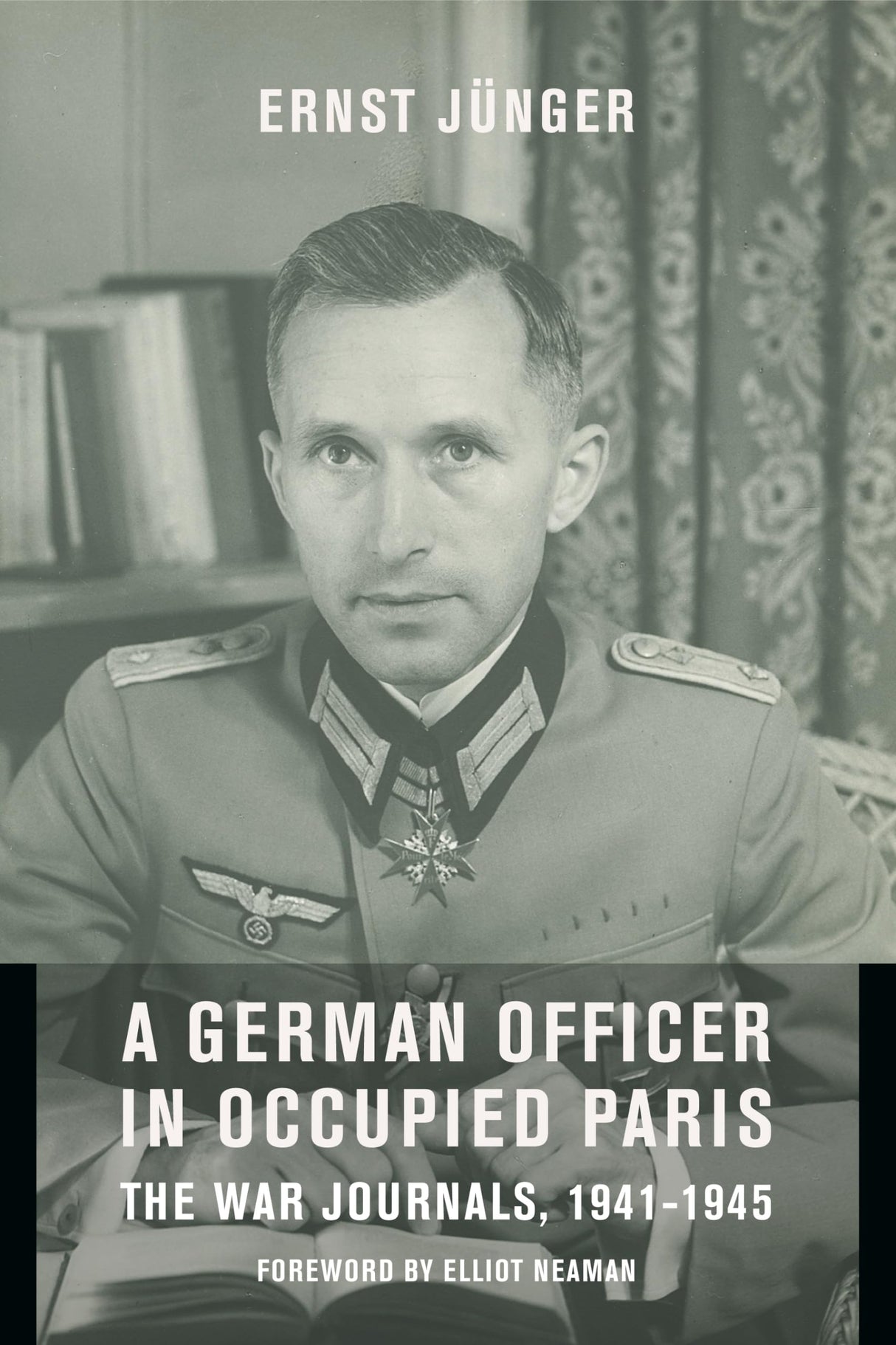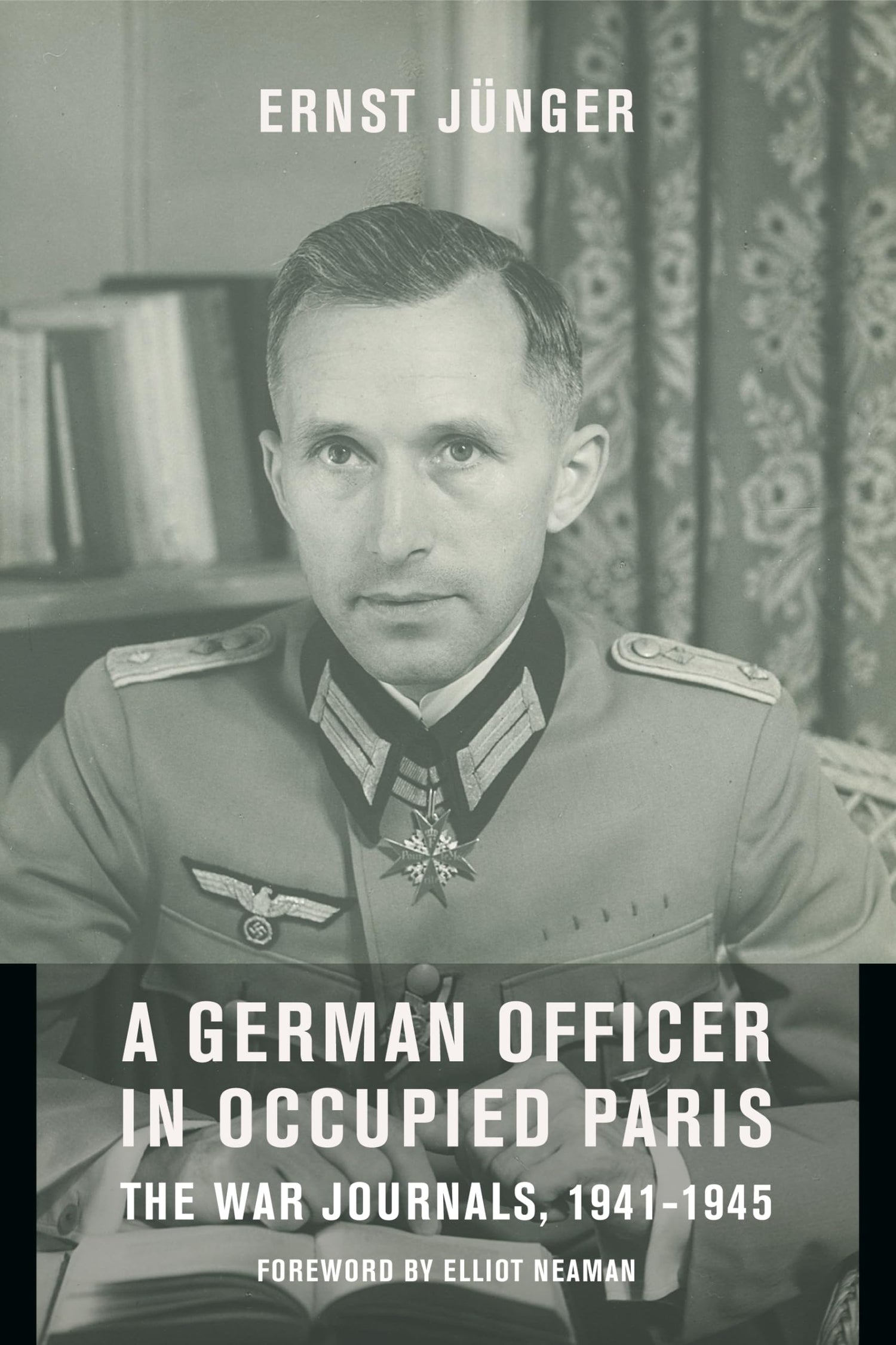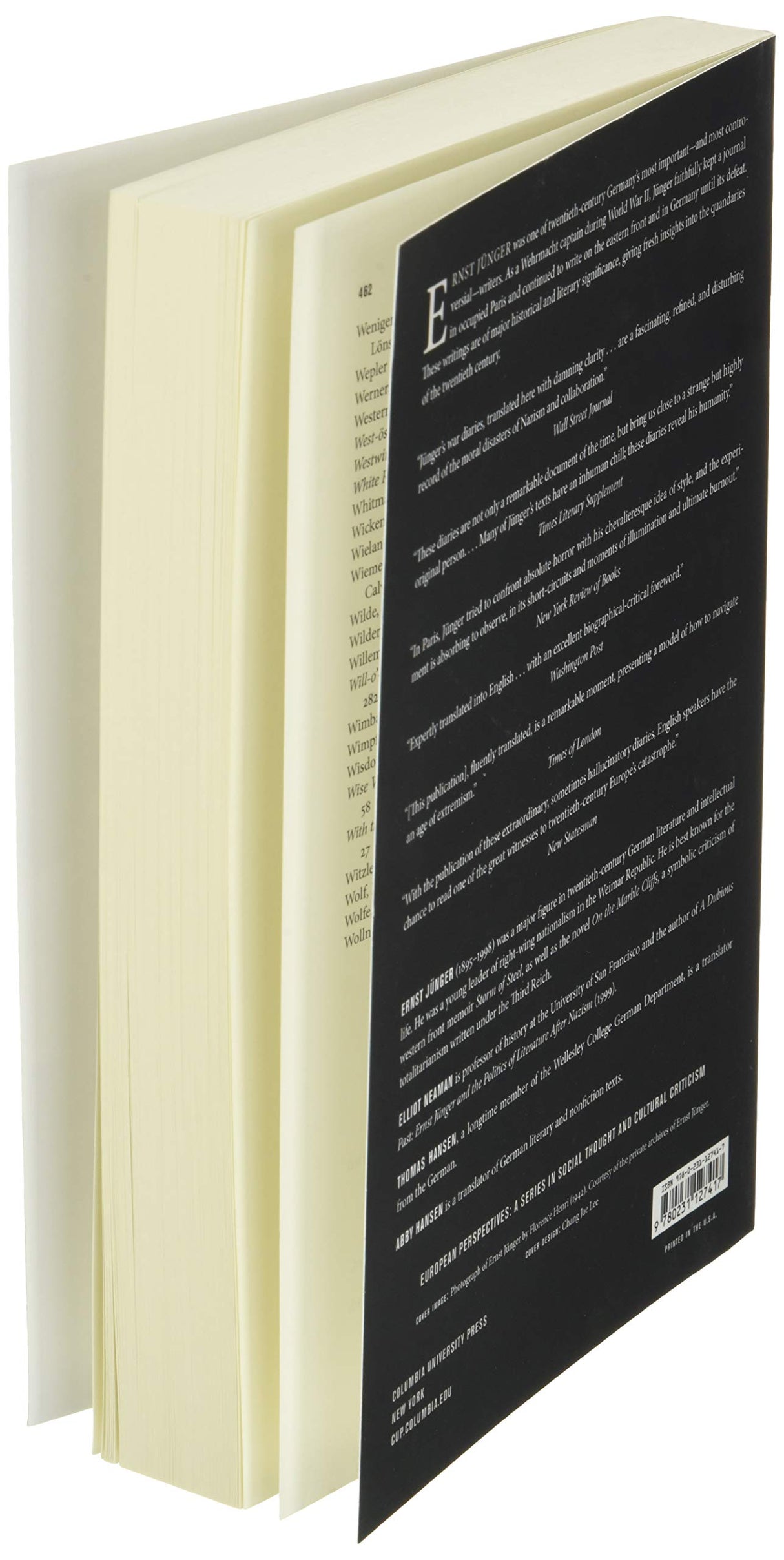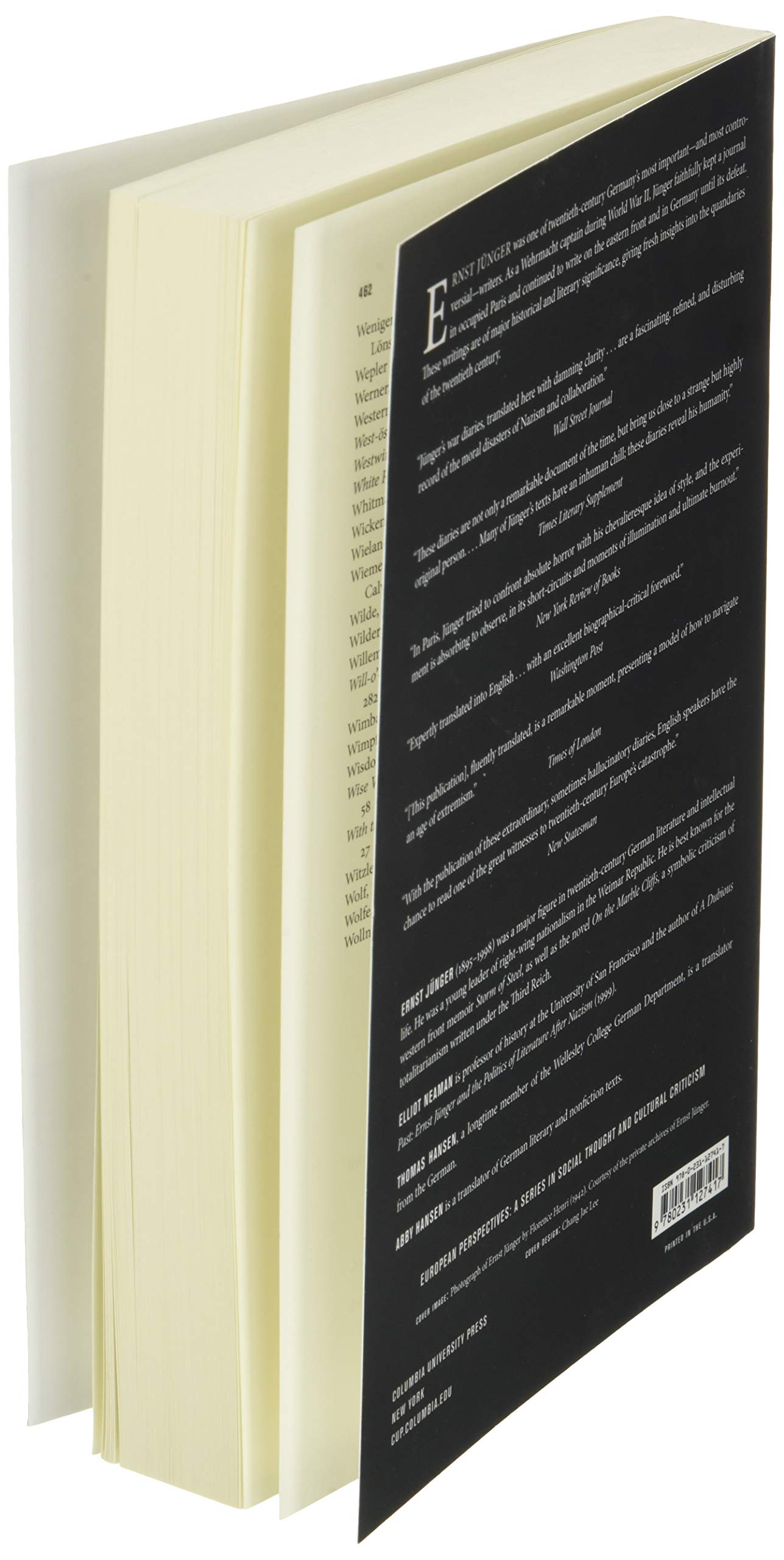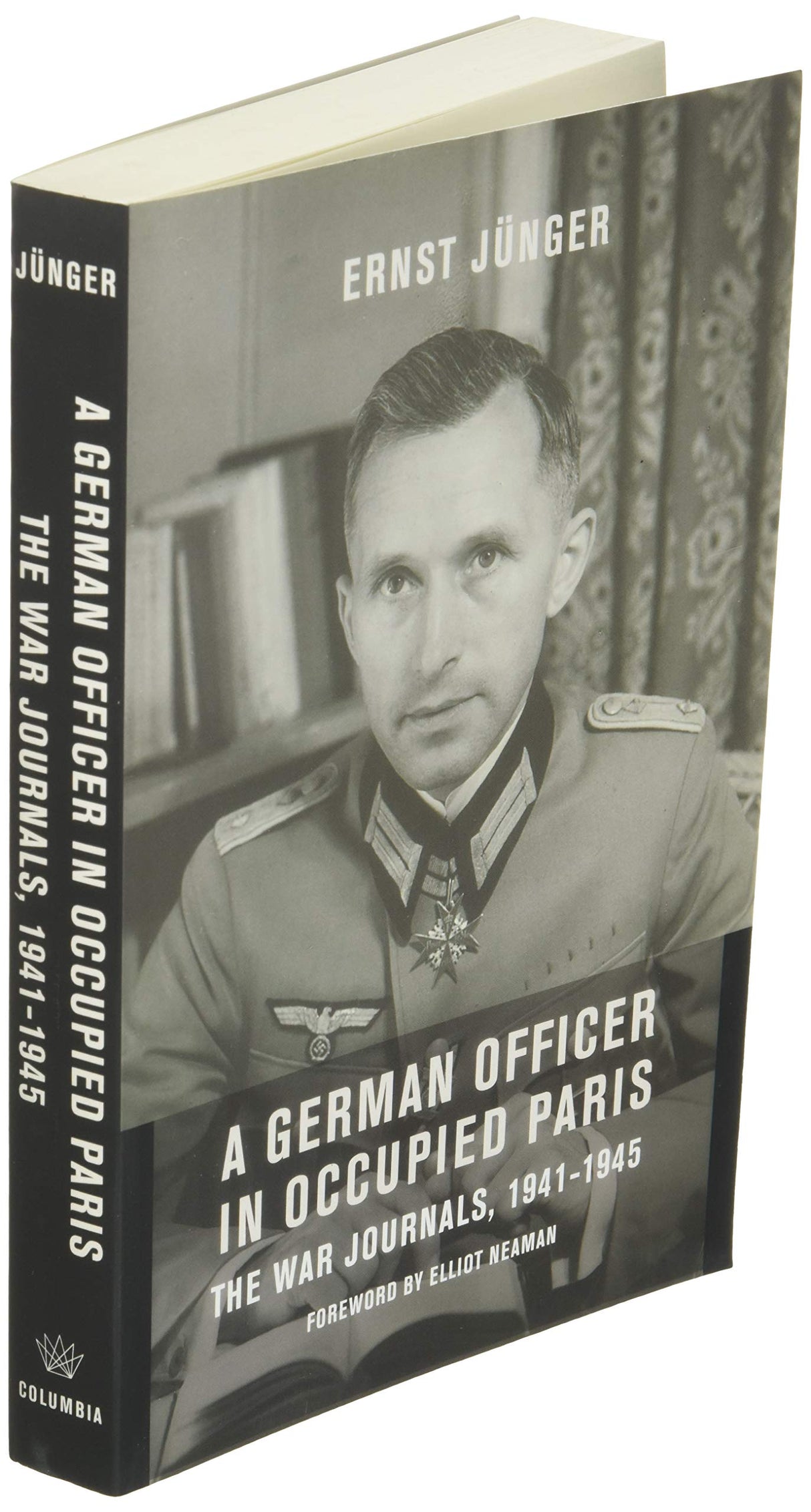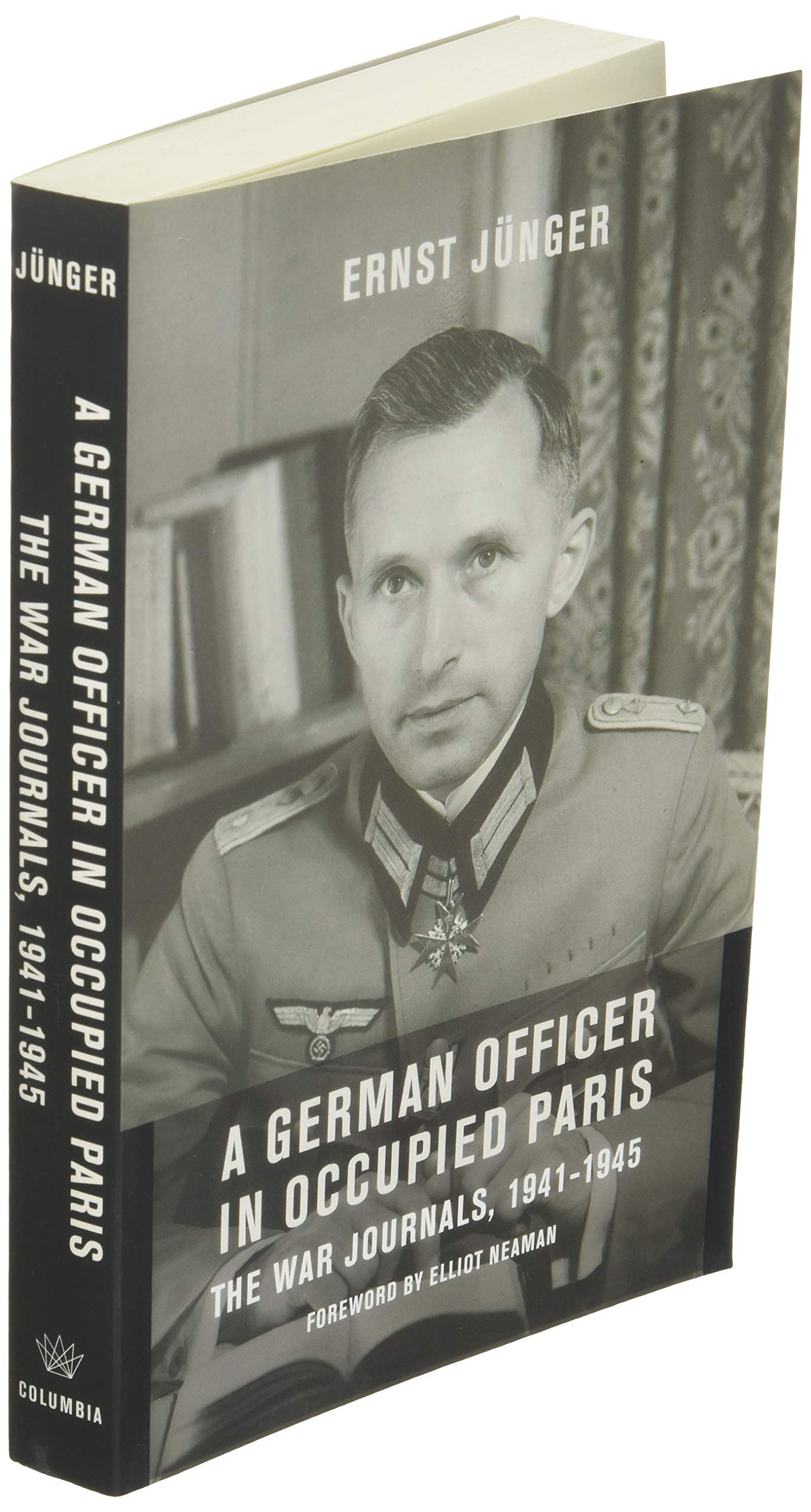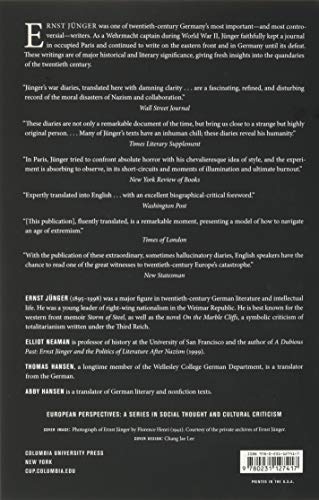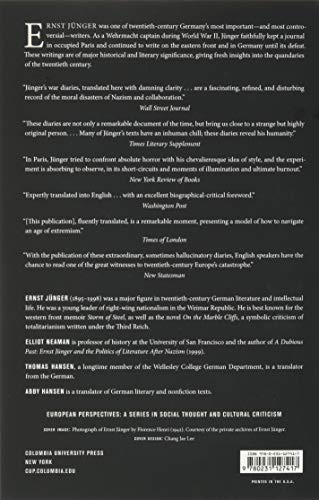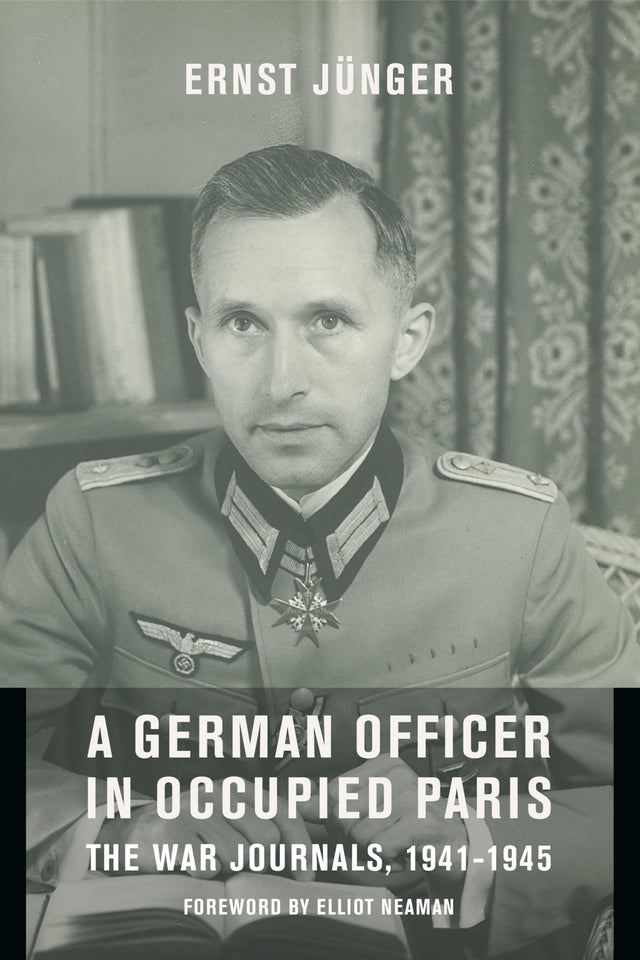A German Officer in Occupied Paris: The War Journals, 1941-1945 (European Perspectives: A Series in Social Thought and Cultural Criticism)
A German Officer in Occupied Paris: The War Journals, 1941-1945 (European Perspectives: A Series in Social Thought and Cultural Criticism) is backordered and will ship as soon as it is back in stock.
Couldn't load pickup availability
Genuine Products Guarantee
Genuine Products Guarantee
We guarantee 100% genuine products, and if proven otherwise, we will compensate you with 10 times the product's cost.
Delivery and Shipping
Delivery and Shipping
Products are generally ready for dispatch within 1 day and typically reach you in 3 to 5 days.
Author: Jünger, Ernst
Brand: Columbia University Press
Edition: Reprint
Binding: paperback
Number Of Pages: 496
Release Date: 23-10-2020
Details: Product Description
Ernst Jünger was one of twentieth-century Germany’s most important―and most controversial―writers. Decorated for bravery in World War I and the author of the acclaimed western front memoir Storm of Steel, he frankly depicted war’s horrors even as he extolled its glories. As a Wehrmacht captain during World War II, Jünger faithfully kept a journal in occupied Paris and continued to write on the eastern front and in Germany until its defeat―writings that are of major historical and literary significance.
Jünger’s Paris journals document his Francophile excitement, romantic affairs, and fascination with botany and entomology, alongside mystical and religious ruminations and trenchant observations on the occupation and the politics of collaboration. While working as a mail censor, he led the privileged life of an officer, encountering artists such as Céline, Cocteau, Braque, and Picasso. His notes from the Caucasus depict the chaos after Stalingrad and atrocities on the eastern front. Upon returning to Paris, Jünger observed the French resistance and was close to the German military conspirators who plotted to assassinate Hitler in 1944. After fleeing France, he reunited with his family as Germany’s capitulation approached. Both participant and commentator, close to the horrors of history but often distancing himself from them, Jünger turned his life and experiences into a work of art. These wartime journals appear here in English for the first time, giving fresh insights into the quandaries of the twentieth century from the keen pen of a paradoxical observer.
Review
Ernst Jünger’s record of German-occupied Paris and the battlefields of the Caucasus is a treasure trove for readers interested in the history of the Second World War. Even more, though, it is a literary accomplishment of the first order, a document of European modernism, in which this master stylist leaves traces of the violence of the age between the lines of his crystalline prose. -- Russell A. Berman, Walter A. Haas Professor in the Humanities, Stanford University, and senior fellow, Hoover Institution
These diaries are not only a remarkable document of the time, but bring us close to a strange but highly original person, always capable of a fresh response to the natural world, the atmosphere of Paris, and the hideous events that force themselves on his knowledge. Many of Jünger’s texts have an inhuman chill; these diaries reveal his humanity. -- Ritchie Robertson ―
Times Literary Supplement
For English-speaking readers who do not know his work, A German Officer in Occupied Paris shows the many sides of this complex, elusive writer. -- Edmund Fawcett ―
Financial Times
Through these journals, we see Jünger consorting with resistors and collaborators, intellectuals and artists, drinking champagne, dining in sumptuous restaurants, and accompanying other officers to nightclubs, where naked women perform. Wandering around the city, he combs through antiquarian bookshops, stops in at galleries, discusses literature with friends, and acutely observes plants and flowers change with the seasons. He recounts in detail his dreams, nightmares, and musings on war. . . . A unique historical testimony. ―
Kirkus Reviews
Once read, these [journals] are never forgotten. They are surely the strangest literary production to come out of the Second World War, stranger by far than anything by Céline or Malaparte. Jünger reduces his war to a sequence of hallucinatory prose poems in which things appear to breathe and people perform like automata or, at best, like insects. -- Bruce Chatwin, New York Review of Books (review of French edition)
Politically ambiguous and polymathic, Jünger led a remarkable and long life (he died at the age of 102 in 1998) as a soldier, writer and philosopher. "I suffer from a hyperacute sense of observation," he said, not as a boast, but by way of admitting to a weakness. The foibles of the Nazis, the deathwatch beetl
EAN: 9780231127417
Package Dimensions: 9.2 x 6.1 x 1.1 inches
Languages: English, German

